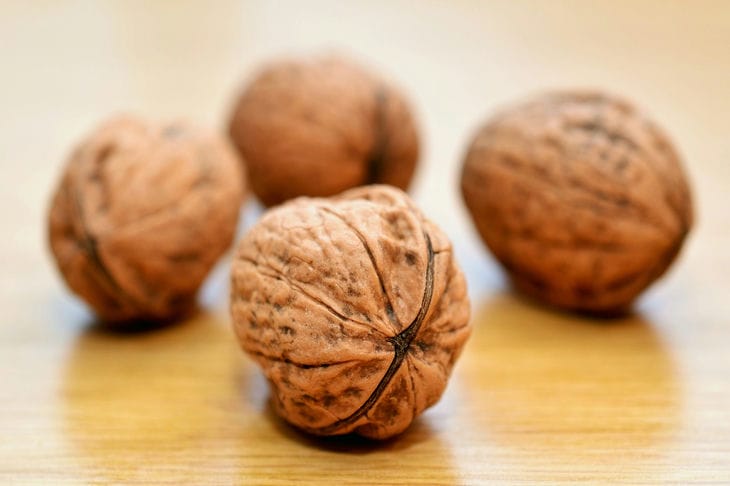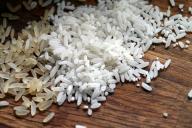It has been proven that walnuts contain 50 times more vitamin C than citrus fruits.
The composition of the kernels is so rich and varied that they can be considered as a medicinal product.
Composition and calories
- Vitamins (A, group B, C, E, K, P);
- Minerals (calcium, potassium, magnesium, cobalt, iron, zinc, selenium, sodium, copper, manganese, phosphorus);
- Beta-carotene;
- Quinones;
- Tannins;
- Fiber;
- Omega-3;
- Alkaloids.
- Fatty acids.

- Fats 62 g
- Proteins 16.2 g
- Carbohydrates 10.8 g
- Caloric content 655 kcal
Beneficial properties
1. Omega-3 fatty acids are good for the heart.
2. They suppress appetite even in small quantities, which makes them beneficial for dietary nutrition.
3. Antioxidants prevent atherosclerosis and participate in the dissolution of cholesterol plaques.
4. When consumed in moderation, they improve the functioning of the gastrointestinal tract and metabolism. They promote the development of beneficial microflora.
5. Increase fertility and male potency.
6. Increase immunity with a large amount of vitamins.
7. Iodine is useful for thyroid diseases.
8. They have a positive effect on insulin production and increase hemoglobin.
9. Beneficial for skin and hair, nervous system. Increases resistance to stress.
Many people are interested in the question: does eating nuts strengthen or weaken the stomach when you have constipation? Since the kernels contain a large amount of oil, they have a mild laxative effect.
Indications for use
Medical experts consider it beneficial to consume the daily dose of kernels daily and recommend it as a preventative measure:
1. Cardiovascular, infectious diseases;
2. Type 2 diabetes;
3. Anemia;
4. Avitaminosis;
5. Decreased male fertility;
6. High cholesterol levels.
Daily norm
It is enough for an adult to eat 10 walnuts a day.
From what age to give to children
Most pediatricians recommend introducing walnuts into the diet of children from 3 years of age.
Nuts are a source of energy necessary for a growing organism. Eating a reasonable amount in the first half of the day will have a beneficial effect on the child. From 3-5 years old, you can give 1-2 times a week up to 50 g, or 2-3 pieces daily. From 5 to 10 years old, up to 5 fruits daily will be useful. Can be used as an additive to porridge, desserts.
It should not be given to children whose teeth are not fully formed. Contraindications include problems with the gastrointestinal tract, kidneys, and obesity. To protect against allergies, introduce into the diet gradually, observing the body's reaction.
Contraindications
1. Allergy;
2. Psoriasis;
3. Neurodermatitis;
4. Obesity;
5. Gastritis and pancreatitis - with caution.
A large amount of fat can have an excessive effect on the liver, and excess protein can lead to the proliferation of pathogenic microorganisms and bacteria in the intestines, causing rotting processes. High caloric content is a disadvantage for those suffering from excess weight and in case of abuse.
It is not advisable to combine it with products containing large amounts of protein and carbohydrates. The total amount of substances will be difficult to digest. It is better to consume it separately, 1.5-2 hours before other products.
Poisoning
Walnuts are the most popular and accessible, so the question arises whether you can get poisoned by them. Causes of intoxication:
1. Expired expiration date;
2. Fungal infection, mold;
3. Abuse.
If symptoms are severe, you should consult a doctor.
Allergy
The product is among the top ten most common allergens, which is due to the proteins in the composition. The reaction manifests itself in varying degrees of severity, up to anaphylactic shock.
Earlier, it was reported that the volume of production of medicinal products in Moscow had increased .









